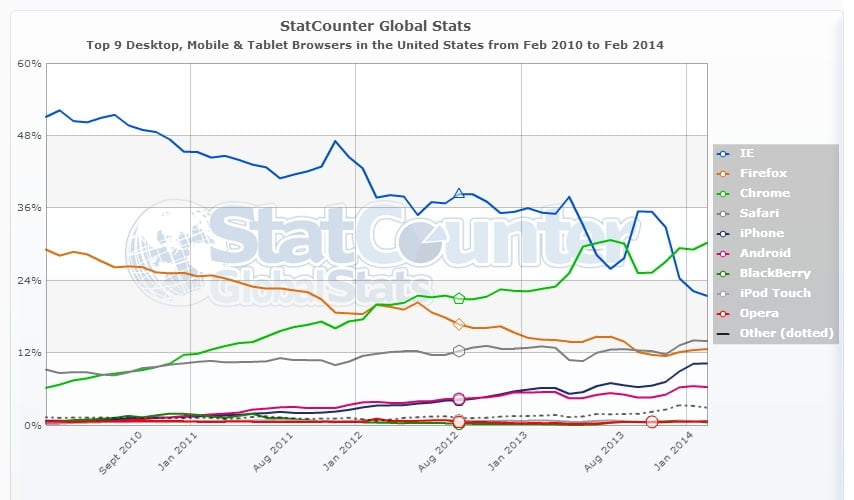 Summary: The “Native apps vs. HTML5 apps” debate has raged for the last few years. Some tout the benefits of the native approach, while others swear by HTML5. The only problem is, this argument doesn’t make sense. Find out why, and which question you should be asking instead.
Summary: The “Native apps vs. HTML5 apps” debate has raged for the last few years. Some tout the benefits of the native approach, while others swear by HTML5. The only problem is, this argument doesn’t make sense. Find out why, and which question you should be asking instead.
Over the last few years, I’ve heard the same argument. Native apps vs. HTML5 apps: Which is better?
Great arguments exist for both sides. Native apps provide better performance. HTML5 apps work across all platforms. Native apps offer more features. HTML5 apps insulate you from the ever-changing mobile landscape.
There’s only one problem with this argument: We’re asking the wrong question.
Let me explain:
In the past, we had two different internets. The web we viewed on our PCs differed from the web we viewed on our phones. Phone browsers lacked the power of the PC browser, and required separate, bare-bones web pages. The “mobile web” referred to physically different (often text-based) pages built to run on weak phone browsers.
Combine that with the fact that few people owned “smart” phones, and you understand why these mobile-optimized sites were rarely used. Most people browsed the web on their PC.

Fast-forward to today. Mobile and tablet usage has exploded. Mobile browser usage now accounts for 20% of web traffic, and that number is rising. As illustrated below, browser usage has gradually become more diversified. We don’t have a single browser with a 90% market-share as we did in the past.
In addition to their growing market share, mobile browsers have caught up with PC browsers in terms of capabilities. They deliver the same–albeit smaller–experience as desktop browsers.
In other words, we no longer have the “web” and the “mobile web.” There’s just “the web.” Users just access the web differently today than they did in the past. Some use small screens with touch-based interfaces. Others use large screens with mouse-based interfaces.
Regardless, it’s all the same web. We’re just living in a multi-screened world.
When you start viewing the web in its modern form–a variety of interface types and screen sizes–the “Native vs. HTML5” argument doesn’t make sense. Is it really an “either/or” question? Would you seriously consider building web applications that DON’T adapt to the modern realities of the web? Would you really build applications that ignore web users? Of course not!
We see great examples of this all across the web. For instance, Facebook’s native app is one of the most popular apps across every mobile platform. But, did you realize they also offer an HTML5 version that works across all devices? LinkedIn does the same thing. So does Chase Bank. The list could go on.
These companies recognize the new reality. The question isn’t “Native or HTML5?” It’s “HTML5 AND Native?” As mobile browser usage climbs, web apps that adapt to any screen size or device become table stakes. That’s a given. The real question is: Do you also need a native app?

Pingback: 7 Web Development Challenges You Can’t Ignore – Web Design Questions
i Completely agree with Joe … its all depends upon the what requirement do we have and where the users are the users are more ….